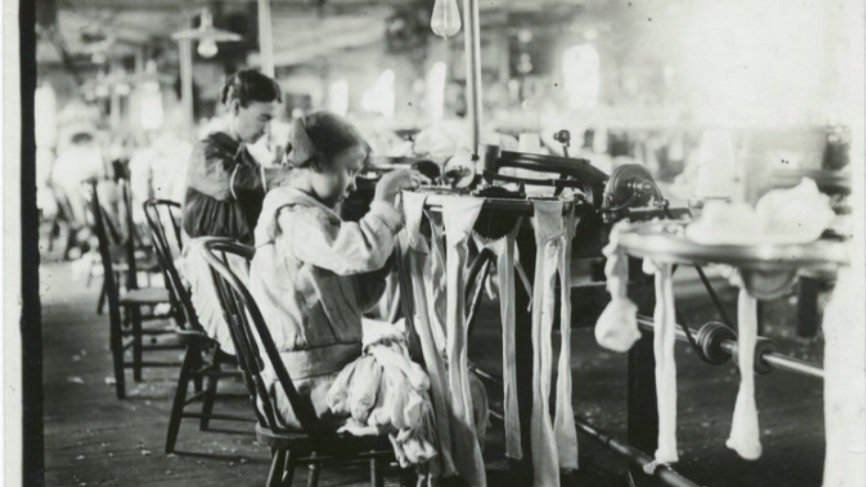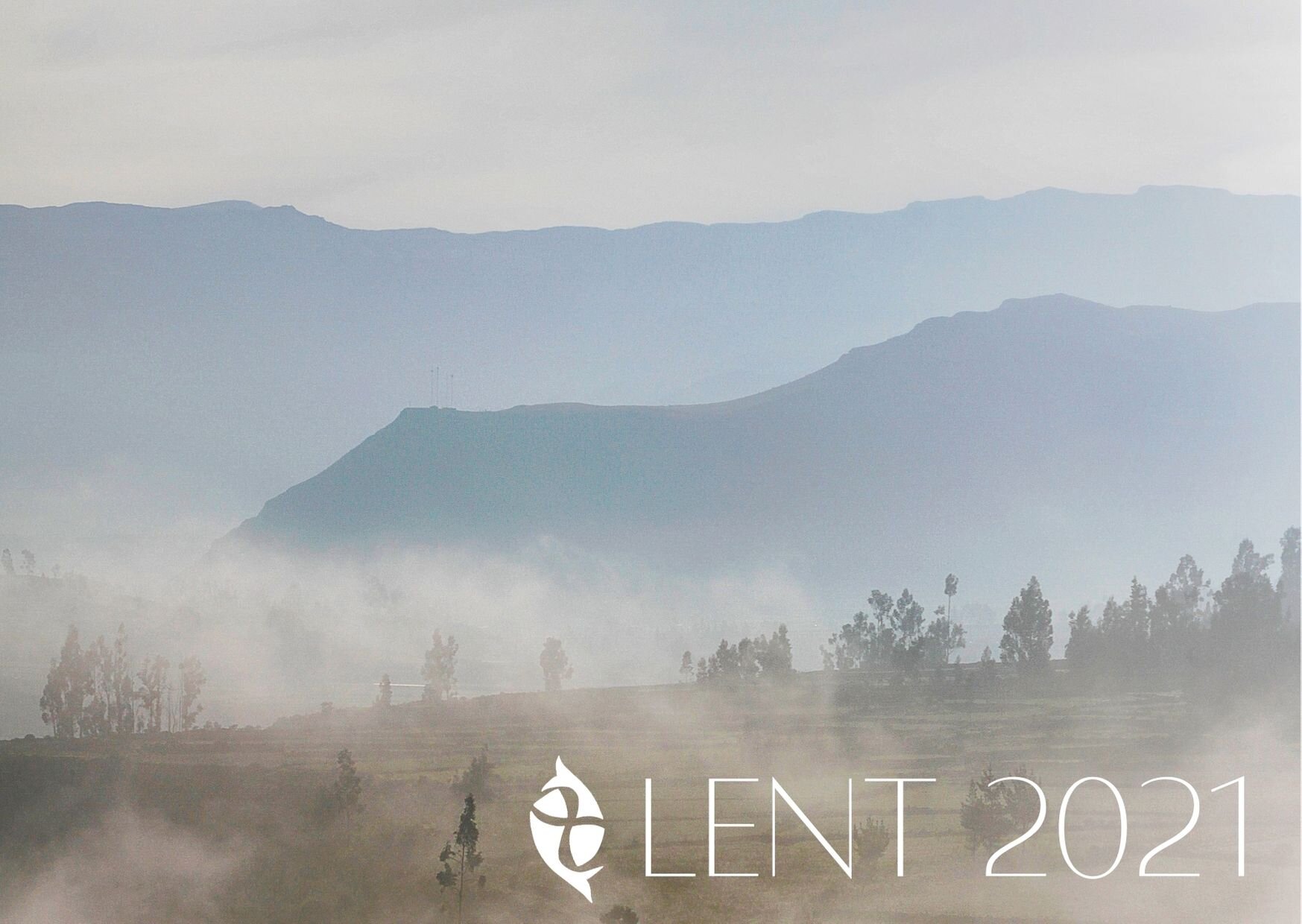Elevating Work, Prayer, and Potatoes
Feb 5th, 2021 | By Ally Eidemueller BK ‘22
Pictured: pancakes drizzled with chocolate syrup
The painting The Angelus by Jean-François Millet depicts a man and a woman praying over their potatoes in the evening. The shaded silhouette contrasts the sun’s setting rays on the horizon. Over the man’s right shoulder, the sun engulfs the image, which draws the mind to something greater than the pitchfork and meager harvest, which represent the simple but inherently good livelihood of the pair. Behind the woman, almost resting on her back, is a church steeple, which pierces the sky, connecting Heaven and Earth. In the silence of the painting, we hear the tolling of the bells.
Three times a day the bells chime: 6am, 12pm, 6pm. At the joyous prompting of the bells, the people in the painting replace their thoughts with prayers towards Heaven. They stop their work and pray the Angelus, which reflects on the Annunciation and the Incarnation. In the beauty of the painting, we are elevated above the simplicity of daily work through prayer.
Much like this painting, our daily life is not static. In Ecclesiastes, we are reminded of the variety of blessings at different times in life. [1] There are times for work, yes, but there are also times for mourning, times for laughing, and times for celebrating. Ecclesiastes argues that a human life well lived does not seek to escape all difficulties or smother sadness, but instead embraces each of these times, knowing that goodness, truth, and even joy, underlie the toils and triumphs of life. For example, if the people in the painting put their entire hearts, souls, and minds into their potato harvesting, even when difficult or painfully mundane, their lives would have substantially more meaning than if they remained indifferent to their livelihood. But still there is something more. The true purpose of their work is only actualized when it is offered in thanksgiving, when their eyes look toward Heaven.
In the mundane and painful experiences of the day to day, we search for a deeper meaning that transcends our reality: both to give meaning to our sufferings and to elevate our joys. Our sufferings unite us with Christ on the cross; joy provides us a small taste of eternal life, not as a fleeting instant, but, by the grace of God, as a light in the hiddenness of one’s soul. This joy points toward, without satisfying our desire for, Heaven. The ultimate celebration brings together the human and divine; the joy and sacrifice; and the visible and invisible.
God created the world and “God saw that it was good.” [2] Therefore, the goodness of the things of the world provide an avenue through which we catch a glimpse of the greater reality of the divine. George Weigel, author and biographer, writes that the sacramental imagination is the “conviction that God saves and sanctifies the world through the materials of the world.” [3] In the world and all the things in it, we experience the extraordinary work of God’s grace.
Although we might not fully lose the sense of goodness in our experiences and the things we do in the day-to-day, we take on a false persona when we separate our daily toils from God. This happens when we seek our fulfilment through pleasures or refuse to search for a deeper meaning in order to shield ourselves from the painful realization of our inadequacy without God. Further, Kazimierz Brandys’ depicts this modern life of detachment in “The Defense of Granada”:
Tormented by a confused desire, longing to forget the program for its realization, the crowd wants to discover the flavor of life, which allows it to taste the pleasure of the space of existence. [4]
Originally written to describe a society that numbs the search for life’s meaning, this passage alludes to a life without flavor—a life that is unable to fully acknowledge the satisfaction of existence. Thus, a world conceptually detached from Heaven deprives man of that which is fundamental to his life. In the search for flavor and taste, a life well-lived must surpass the abstract and be grounded in something concrete, like work, prayer, and potatoes, without turning its back on mystery. [5]
In order to grasp the search for meaning, we must embrace reality rather than shun it. The beauty of the world around us is imbued by the grace of God. In his book Orthodoxy, English writer G. K. Chesterton beautifully describes a life well-lived through a depiction of Christ:
The tremendous figure which fills the Gospels towers in this respect, as in every other, above all the thinkers who ever thought themselves tall. His pathos was natural, almost casual. The Stoics, ancient and modern, were proud of concealing their tears. He never concealed His tears; He showed them plainly on His open face at any daily sight, such as the far sight of His native city. Yet He concealed something. Solemn supermen and imperial diplomatists are proud of restraining their anger. He never restrained His anger. He flung furniture down the front steps of the Temple, and asked men how they expected to escape the damnation of Hell. Yet He restrained something. I say it with reverence; there was in that shattering personality a thread that must be called shyness. There was something that He hid from all men when He went up a mountain to pray. There was something that He covered constantly by abrupt silence or impetuous isolation. There was some one thing that was too great for God to show us when He walked upon our earth; and I have sometimes fancied that it was His mirth. [6]
Simply, Christ wept. He expressed anger. He ate. He drank. In concealing His mirth, a joyous spring of laughter gushing from an acute love in the depth of His soul, we recognize this bottomless joy of God as a gift we can only receive from the Lord. The greatness and hiddenness of this mirth exposes to us the depth of human existence, which can only truly be celebrated when in union with God. As people, we search for meaning in the concrete. Because of this, God became incarnate, and His Son, fully divine and fully human, died on the cross out of love for us. The ultimate celebration brings together the divine and the human, which is made possible by Christ’s sacrifice. This is exemplified in the Sacrifice of the Mass, by which we partake in Christ’s sacrifice and receive the Lord under the humble species of bread and wine.
The tolling of the bells unceasingly reverberated throughout New Haven. The Saint Mary’s grey cobblestone steeple towered above the surrounding buildings and seemed to pierce the impenetrable autumn sky, and the bells enveloped the world around me as I neared the church.
Clang, Clang, Clang
Inside the church, a priest celebrates the Sacrifice of the Mass. We bow and kneel, recite and sing, elevating the toils of our daily lives. The priest stoops over the bread and prays the consecration… For this is My Body, which will be given up for you. He holds up the humble host that joins heaven and Earth in God Incarnate.
Notes
[1] Ecclesiastes 3:1-13.
[2] Genesis 1:10.
[3] Weigel, George. Letters to a Young Catholic. Basic Books, 2015. 92.
[4] Brandys, Kazimierz. Defense of Granada. 1956.
[5] Read more on mystery in Luigi Giussani, The Religious Sense. McGill-Queen’s University Press, 1997. Print.
[6] Chesterton, G.K. Orthodoxy. Ignatius Press, 1995. Print, 167.
[7] All Biblical quotations from the NAB translation.




February 1, 2023 | Amelia Dilworth BR ‘23
Sometimes when I look at my Google Calendar, I think of each hour as a city block, and all my events as buildings I’ve constructed in the city of my life.
And sometimes, I think—this is not a city I’d want to live in.